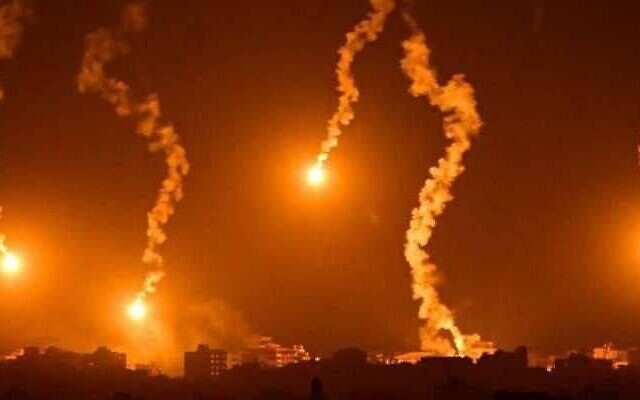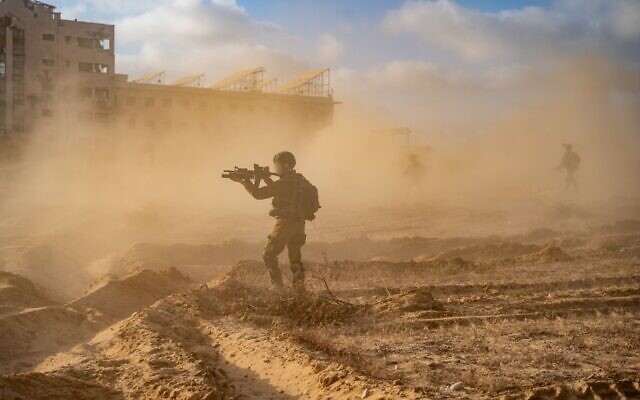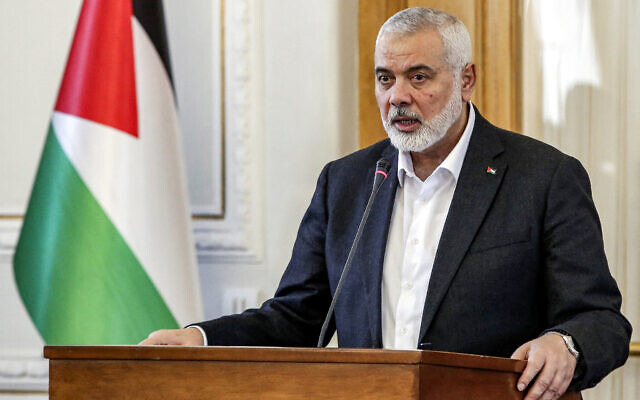Russia fired S-300 at Israeli jets over Syria in ‘one-off’ incident, Gantz confirms
Defense minister acknowledges accuracy of TV report after May airstrike in Masyaf, says IAF fighter jets had already departed area
Emanuel (Mannie) Fabian is The Times of Israel's military correspondent
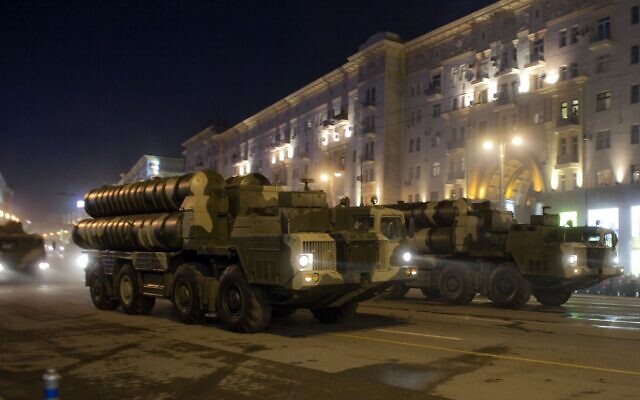
Defense Minister Benny Gantz on Tuesday confirmed that Russian forces opened fire on Israeli jets in May using advanced S-300 anti-aircraft missiles, at the end of an Israeli Air Force attack on targets in northwestern Syria.
The incident was first reported by Channel 13 news a week after the strike on May 13, in which the IAF bombed several targets near the city of Masyaf in northwestern Syria.
“It was a one-off incident,” Gantz told a conference hosted by Channel 13 on Tuesday when asked by Alon Ben David, the reporter who broke the story.
“Our jets weren’t even in the area,” Gantz added, confirming the original report which claimed the S-300 radar did not manage to lock onto the Israeli jets that were leaving the area, and thus did not pose a serious threat to the pilots.
The incident marked the first use of the S-300s against the IAF over Syria.
As Syria’s S-300 batteries are operated by the Russian military and cannot be fired without their approval, it was a worrying development for Israel, which has carried out hundreds of airstrikes inside Syria in the course of the country’s civil war and since, targeting what it says are arms shipments bound for Lebanon’s Iran-backed Hezbollah terror group and other Iranian-linked sites.

But Gantz stressed: “I think the situation is stable now.”
Israel has reportedly conducted numerous airstrikes in Syria since the May incident.
The Masyaf area is thought to be used as a base for Iranian forces and pro-Iranian militias and has been repeatedly targeted in recent years in attacks attributed to Israel. Satellite imagery taken after the strike showed that an underground facility had been completely destroyed.
Gantz’s confirmation comes amid a deterioration in ties between Israel and Russia over Moscow’s plans to shutter the Jewish Agency in the country.
Israel has found itself at odds with Russia as it increasingly supports Ukraine amid Russia’s invasion, while seeking to maintain freedom of movement in Syria’s skies, which are largely controlled by Moscow.
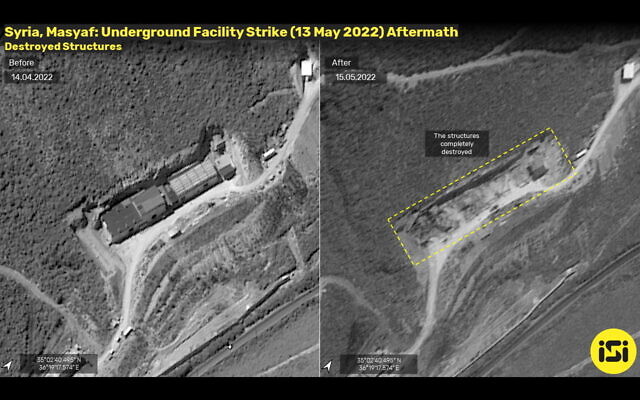
In recent years, Israel and Russia established a so-called deconfliction hotline to keep the sides from getting tangled up and accidentally clashing over Syria.
In 2018, Russia provided the advanced S-300 air defense system to Syria’s military free of charge, transferring three battalions with eight launchers each to the Assad regime despite strenuous objections from Israel and the US.
Russia’s delivery of the S-300 system to Syria followed the downing of a Russian spy aircraft by Syrian forces that were responding to an Israeli strike over Syrian airspace. Russia blamed Israel for the incident, which killed 15 Russian crew members.
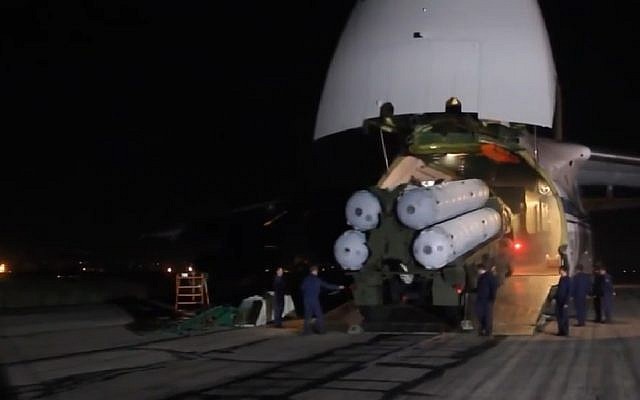
Israel and its allies for years had lobbied Russia not to give Syria and other regional players the S-300 system, arguing that it would limit Israel’s ability to neutralize threats, including by Hezbollah.
Beyond providing Syria with its air defenses, Moscow also maintains state-of-the-art S-400 air defense systems to protect its own assets in Syria, but has never turned them on Israeli planes.
Times of Israel Staff contributed to this report.



